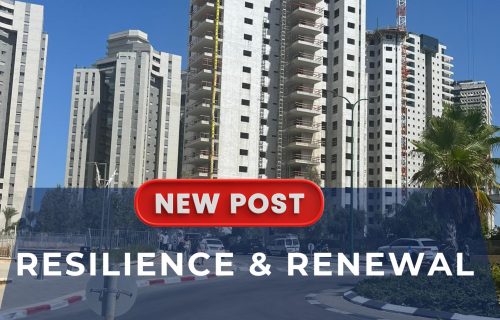Ready to invest: Israel, The Holy Grail of Real Estate – But Can I Get a Mortgage?
Israel, the Holy Land and one of the world’s most popular destinations, is also the Holy Grail of real estate. And while owning a property in Israel – whether it is for investment purposes or buying a house in Israel in which to make a home – is an aspiration for most, for others who can invest in the Israel real estate market, it fast becomes a dream come true.
A dream, however, is not without its scary moments. Once you have found your perfect real estate opportunity for sale, getting a mortgage in Israel can be an additional hurdle keeping you from your destiny. To ensure that this doesn’t happen, it is important to understand the ins and outs of the Israeli mortgage system, or what is called in Israel a ‘Mashkanta’. This will help you make an informed decision when making the investment of a lifetime.
For starters, it is reassuring to know that as a foreigner investing in real estate in Israel you are eligible to apply for a mortgage in Israel. As a foreigner, you can take out a mortgage of up to 50% of the purchase price in the currency of your choice – Shekels, Dollars, Euro, and Pound – for a period of up to 30 years or until the age of 80.
If you are 50 or younger, you might qualify for a 30-year mortgage and 60 plus for a 20-year mortgage (although an older person can get a child, over the age of 18, to co-sign a mortgage provided they have the appropriate income.
You can also choose a fixed or variable mortgage option, and there are ways to tailor your mortgage terms to suit your financial plans. You can choose a combination of fixed and variable interest rates, which gives you the flexibility to select the type of mortgage structure that suits you. But, like with all things, careful consideration should be put into the repayment term, as there can be pre-payment penalties if it isn’t adhered to.
You are also able to link your mortgage to a currency, which does introduce an additional element of risk. The down-payment required by a foreigner purchasing property in Israel is 50% of the purchase price, which applies to existing properties. If, however, you latch on to the unstoppable growth in the Israeli property scene and look to buy a property that is part of a new development or a pre-construction project, between 15 – 20% will secure the deal, 35% -30% is then payable during the development cycle, and the balance of 50% is due on completion. This portion can then be financed from a mortgage.
Don’t be concerned the Sales Law 5734 (protection of investment) sets forth the obligation of the developer to provide the buyer with a guarantee as a security for the return of all monies paid to him. The most common are bank guarantees.
For those who are thinking of making Aliyah, it is helpful to know that the mashkanta for Israeli citizens is different, and is determined according to age, marital status, income and the amount of years you have lived in Israel. But generally, Israeli citizens are eligible to borrow up to 75% of the purchase price on your mortgage (depending on certain conditions, of course).
The best part about buying a property in Israel now though is the fact that Israel currently has the lowest fixed mortgage rate that it has had in many years –and consistently rising property prices only enhances your investment.
As enticing as that sounds, however, it is critical that you have your proverbial ducks in a row before you venture to close any deal, as in Israel, contracts cannot be canceled easily. A contract is binding even if your mortgage is subsequently declined, so it is very important that you check out your eligibility and get a pre-approved mortgage.
And of course, there are other additional costs or fees that you should factor in, which will need to be paid upfront, such as:
• Promotor / Realty fees 2%-5% plus VAT (17%)
• Lawyer fees of approximately 1.5% plus VAT
• Mortgage fees 1% – 1.5% plus VAT of the Mortgage amount. At Hold we have secured a fixed fee for our clients.
• The purchase tax 5% of the property- this scales up based on the purchase price
(Note – this is discounted for new immigrants and Israeli citizens who live in Israel when buying a first home)
• Building index – this applies to buying a property that is still in the construction phase and it is effectively interest that the government allows developers to charge on any outstanding funds while the property is being built.
As far as applying for your mortgage, it is also good to know that with Hold, the entire process can be done remotely. This is done through lawyers with a power of attorney to sign on your behalf, and we will also help you to open an Israeli bank account and deal with all the administration related to this. You will need to provide qualifying tax returns from your originating country, an active bank account statement and a few months’ salary slip, as well as your passport and identification documents.
For most people, buying a property is possibly one of the biggest investments that they will make, and finding the perfect property to buy in Israel is the easy part, with its ever-rising real estate market. But, many hidden costs can pop up, so it is crucial that you establish your budget beforehand and enlist the help of a real estate specialist such as our dedicated team of knowledgeable real estate experts who you can trust to secure your future in Israel.
Get in touch with us if you are ready to invest CLICK HERE TO SCHEDULE A CALL!
**The contents of this article are designed to provide the reader with general information and not to serve as legal or professional advice for a particular transaction. Readers are advised to obtain advice from qualified professionals prior to entering into any transaction.




